Last week I was invited to an upcoming press conference at the University of Maryland's School of Medicine, and was told there would be a "major announcement." The press conference was this morning at 11:00, and I awoke to this headline in the Baltimore Sun:
"University of Maryland gets record donation for celiac research: $45 million to help create first-of-its-kind institute."
Dr. Alessio Fasano and his team of researchers and clinicians have been given a most generous private gift of $45 million dollars to, as he said in the press conference today, "find solutions, find a cure, help people NOW" who suffer from celiac disease and related diseases, including including diabetes, rheumatoid arthritis and multiple sclerosis.
Dr. Fasano speaks about how this financial gift will be used.
If you haven't heard of Dr. Fasano, you may have heard of his accomplishments. For example, he led the largest epidemiologic study ever to determine that celiac disease affects 1 in every 133 people, putting celiac disease on the proverbial map back in 2003. He also started the Center for Celiac Research in 1995, with the goal of "increas[ing] the awareness of Celiac Disease in order to provide better care, better quality of life, and more adequate support for the Celiac Disease community."
In addition to Teacher of the Year and numerous other awards, Dr. Fasano was awarded Maryland Innovator of the Year in 2005 and Entrepreneur of the Year at the University of Maryland School of Medicine in 2006. Fasano and his Center also spearheaded the American Celiac Disease Alliance, formally American Celiac Task Force – whose work resulted in Congress passing a food allergen labeling law that makes it easier for people with Celiac Disease and gluten sensitivity to identify safe food items. The Center also created the International Run/Walk for Celiac Disease, which has raised over $1 million for national and local celiac awareness programs and research.
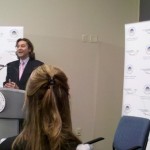 Given Dr. Fasano's proven track record of innovation in this field and dedication to the cause of celiac disease prevention, education and cure, there is every reason to trust that his gift will form the foundation of many exciting discoveries in this field. According to Dr. Fasano, this money will allow them to take risks and think outside of the box — the kind of thinking that takes "discoveries beyond imagination." Alternative treatments will be explored, including fixing the intestinal defect that initially allows the celiac disease autoimmune response, developing enzyme therapy to promote wheat digestion, and engineering grains that do not initiate a celiac reaction. Additionally, other University researchers will work with in conjunction with this expanded celiac center on innovations like a vaccine to prevent autoimmune diseases altogether.
Given Dr. Fasano's proven track record of innovation in this field and dedication to the cause of celiac disease prevention, education and cure, there is every reason to trust that his gift will form the foundation of many exciting discoveries in this field. According to Dr. Fasano, this money will allow them to take risks and think outside of the box — the kind of thinking that takes "discoveries beyond imagination." Alternative treatments will be explored, including fixing the intestinal defect that initially allows the celiac disease autoimmune response, developing enzyme therapy to promote wheat digestion, and engineering grains that do not initiate a celiac reaction. Additionally, other University researchers will work with in conjunction with this expanded celiac center on innovations like a vaccine to prevent autoimmune diseases altogether.
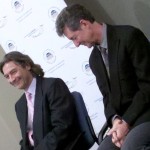 This generous gift was made by Ken and Shelia Cafferty of Indiana, together with an unnamed foundation in which they are involved. The Caffertys know first-hand how important the Center is to people who have celiac disease and gluten sensitivity, as Shelia is a patient of Dr. Fasano. I spoke to Mr. Cafferty today, and he assured me it was an easy decision to give this gift to a Center that has meant so much to their family. Indeed, looking around the room today as patients, community members, researchers, and clinicians all shared the excitement around this gift, our eager anticipation for the future of celiac disease research was palpable.
This generous gift was made by Ken and Shelia Cafferty of Indiana, together with an unnamed foundation in which they are involved. The Caffertys know first-hand how important the Center is to people who have celiac disease and gluten sensitivity, as Shelia is a patient of Dr. Fasano. I spoke to Mr. Cafferty today, and he assured me it was an easy decision to give this gift to a Center that has meant so much to their family. Indeed, looking around the room today as patients, community members, researchers, and clinicians all shared the excitement around this gift, our eager anticipation for the future of celiac disease research was palpable.
To donate to the Center and learn more about their incredible accomplishments, visit CeliacCenter.org.


















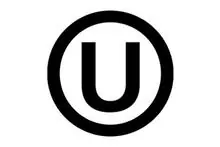
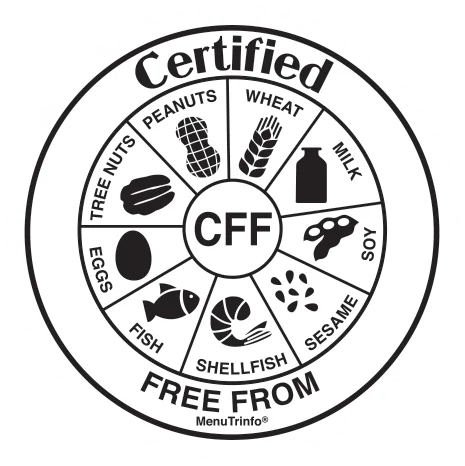
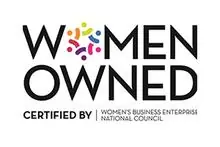

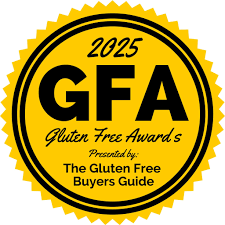
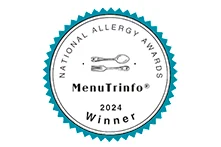
I hope some of their research includes autistic children. I believe celiac families have more of these problems.